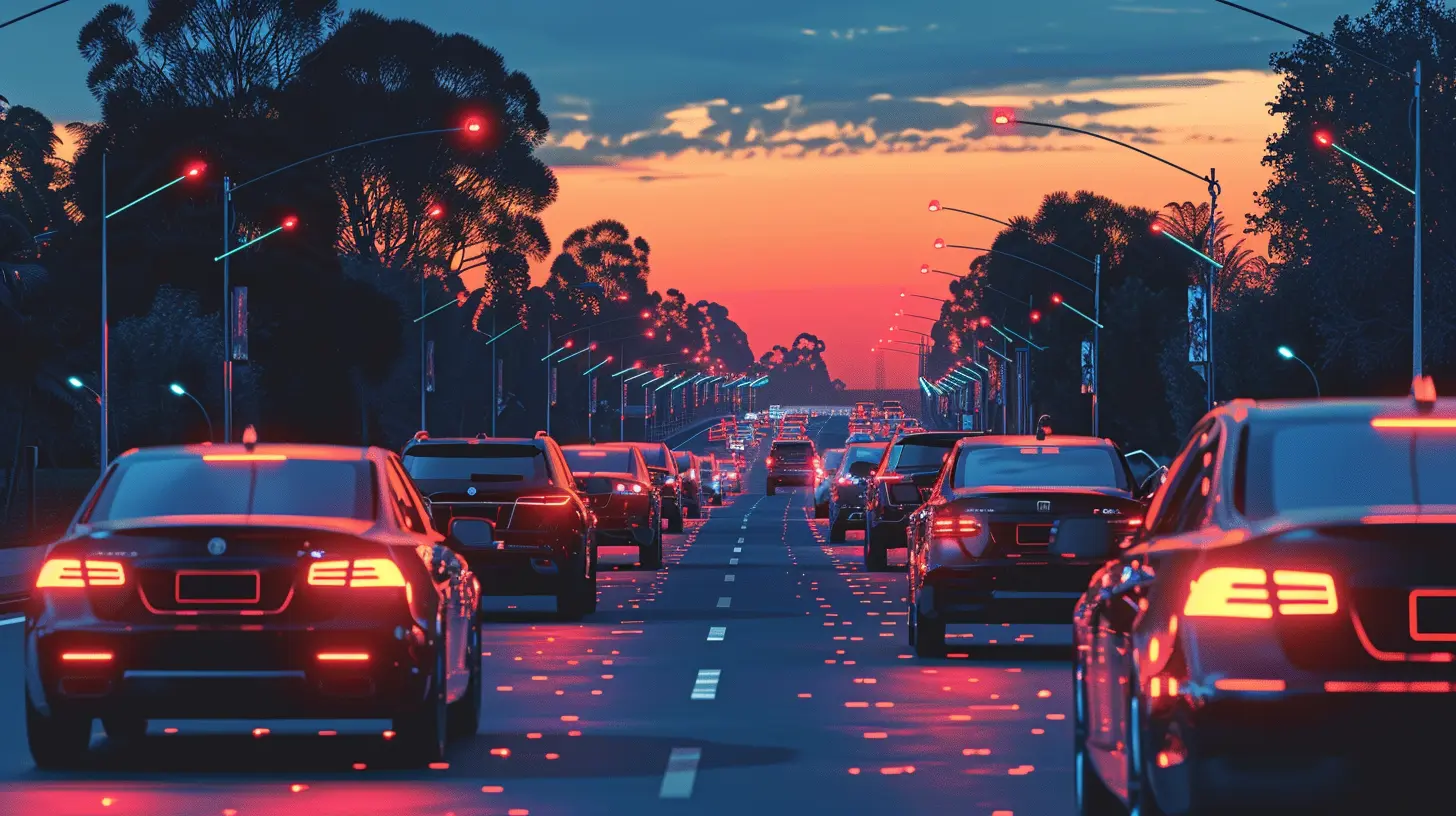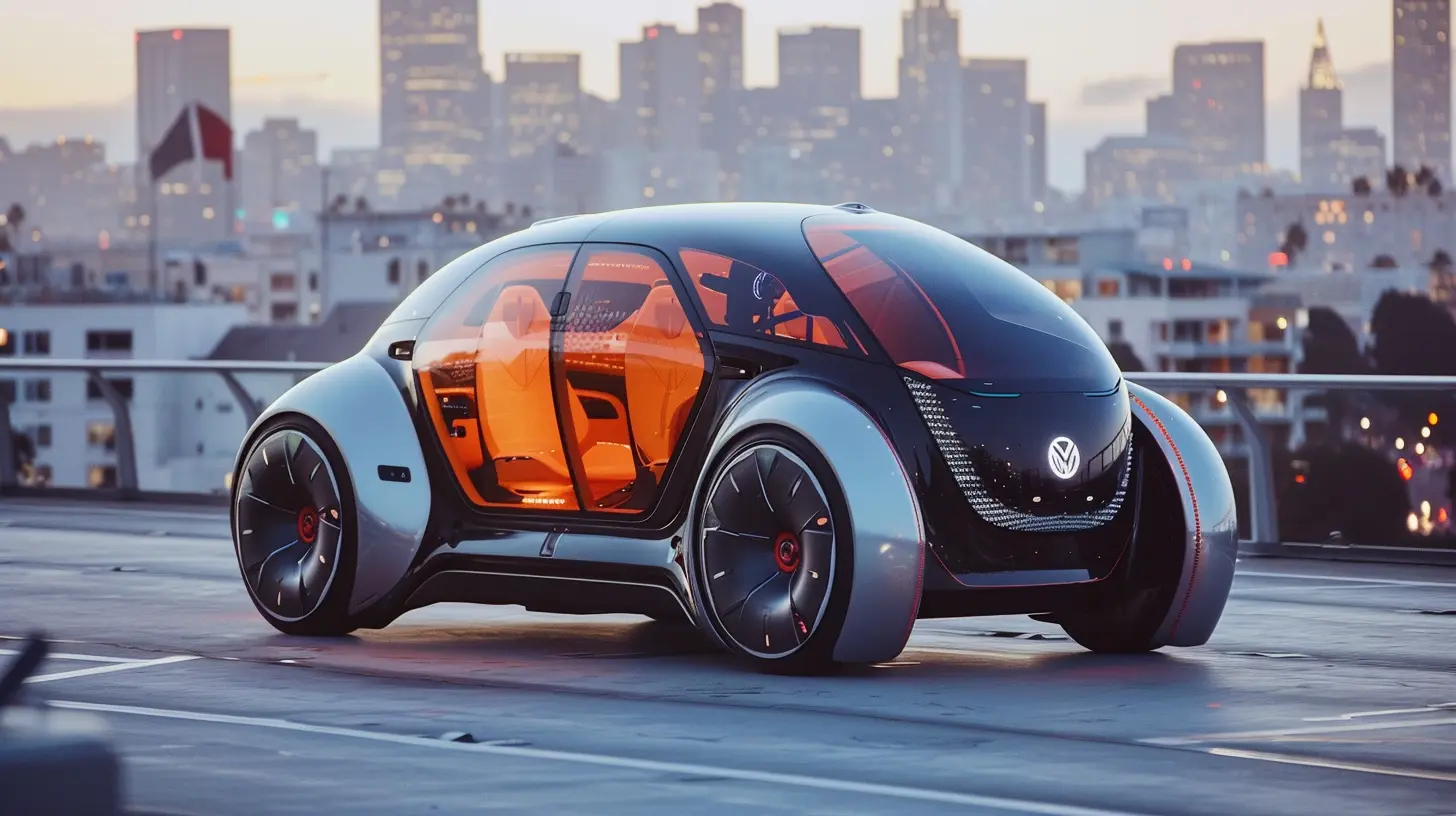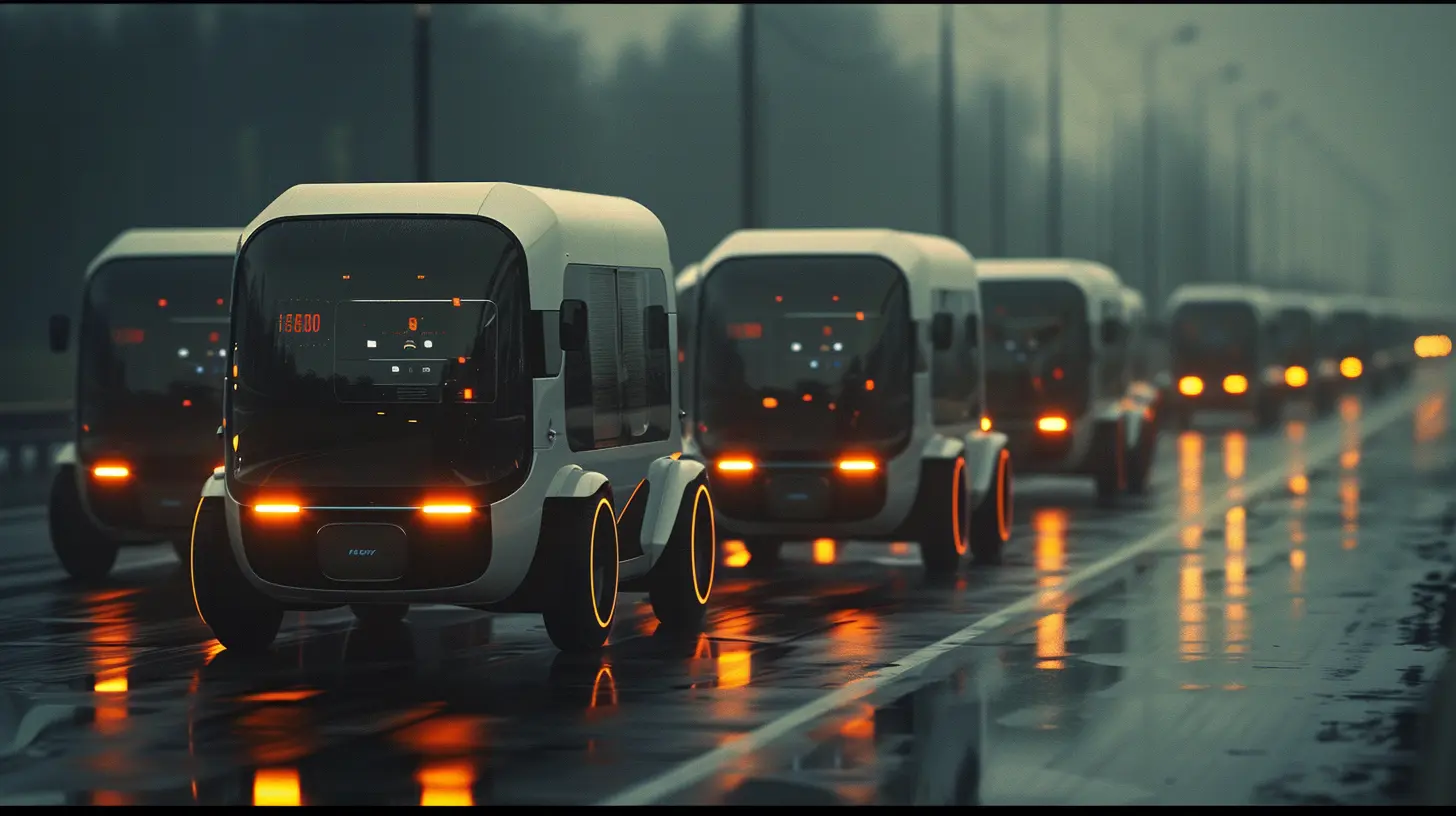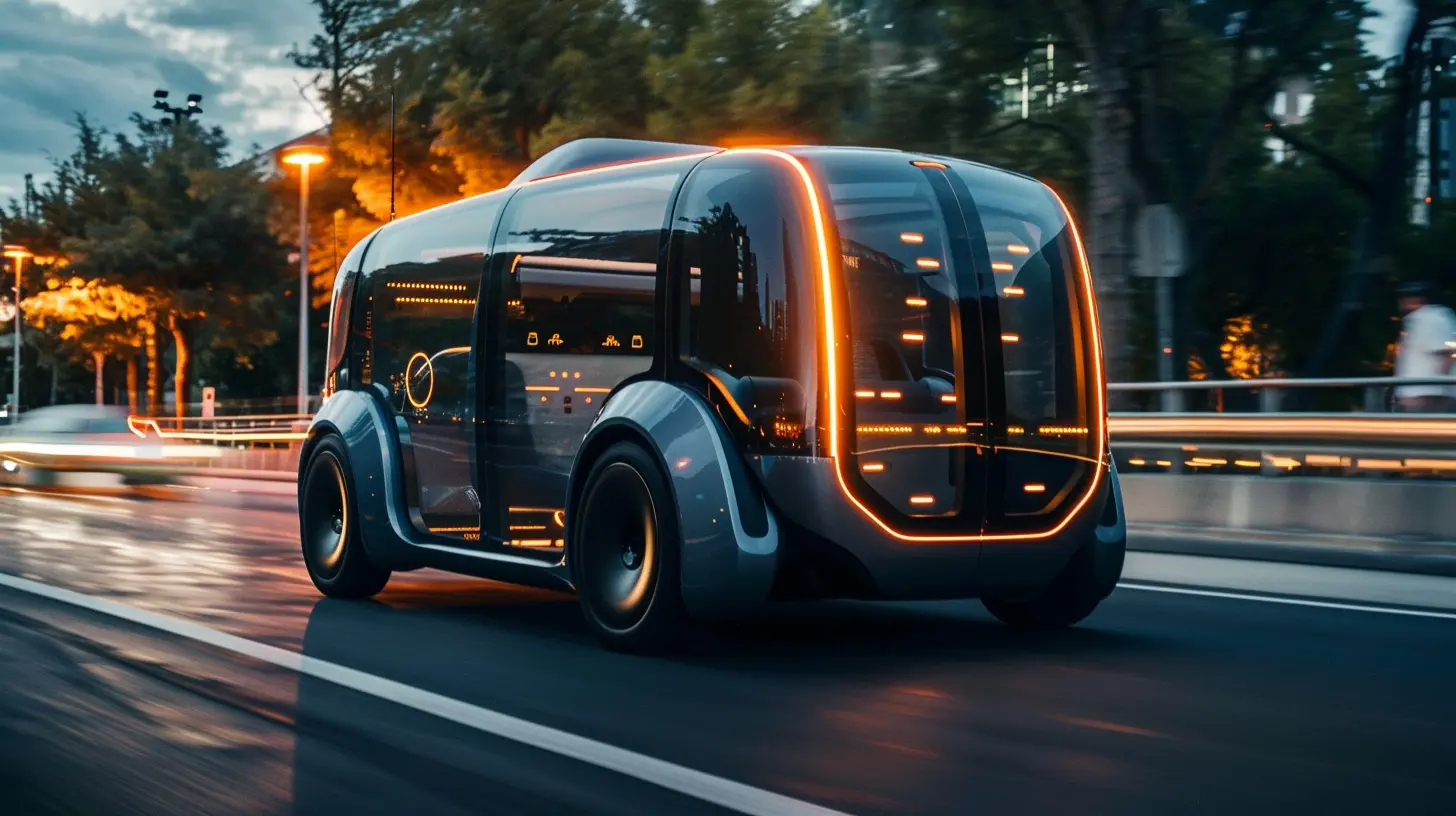Exploring the Psychological Barriers to Autonomous Vehicle Adoption
4 September 2025
Despite all the hype around autonomous vehicles (AVs)—those sleek, self-driving marvels promising to revolutionize transportation—there’s one silent roadblock slowing them down. And no, it's not just bugs in the software or regulatory hurdles. It’s something far more complicated, messy, and human: our minds.
Yep, the biggest speed bump in the journey to full-scale autonomous vehicle adoption isn’t tech—it’s psychology.
In this article, we’re going to roll down the window and take a long, honest look at the psychological barriers standing in the way of AVs becoming a part of our everyday lives. From trust issues to loss of control, from media-induced fear to plain old habit—we're unpacking it all.
Table of Contents
- What Are Autonomous Vehicles?- The Promise vs. The Perception
- Trust Issues: Who’s Really in Control?
- Fear of the Unknown
- Control Freaks: The Need for Steering Wheels
- The Blame Game: Who’s Responsible When Things Go Wrong?
- Media and Movies: The Double-Edged Sword
- Risk Perception vs. Reality
- The Role of Habits and Tradition
- Generational Gaps and Digital Comfort Zones
- How Can We Overcome These Psychological Barriers?
- Wrapping It Up

What Are Autonomous Vehicles?
Let’s start with a quick refresher. Autonomous vehicles (AVs), also known as self-driving cars, are vehicles that can operate without human input. They use a combo of sensors, cameras, AI, and machine learning to “see” their environment, make decisions, and hit the road.Tech companies and automakers are investing billions into AVs, with dreams of safer roads, less traffic, and increased mobility for the elderly and disabled. Sounds perfect, right?
So why isn’t everyone jumping at the chance to kick back and let the car do the driving?
The Promise vs. The Perception
Here's the tough pill to swallow: even though studies show AVs could significantly reduce traffic accidents (since 94% of crashes are caused by human error), most people remain hesitant.Why?
Because the promise and the perception don’t line up. Just like a rollercoaster that’s statistically safer than your daily commute, AVs spark fear because of how they feel, not what the numbers say.
Trust Issues: Who’s Really in Control?
Trust is like the fuel that powers human acceptance. And right now, when it comes to AVs, there’s a major shortage.It’s hard to hand over the wheel, literally, to a machine—even if it’s smarter and faster. When you're used to being in control, letting go feels risky. Especially when the tech isn’t perfect yet, and we keep hearing stories of self-driving car accidents—even if they’re rare.
And let’s be real—how many of us trust our laptops not to crash during an important Zoom call? Now imagine that same computer deciding when to brake or swerve at 70 mph.
Scary, right?
Fear of the Unknown
Fear is one heck of a motivator. And when it comes to AVs, fear of the unknown is huge.Humans are wired to fear what they don’t understand. Driving is something most of us learned in our teens—it’s second nature. AVs, on the other hand, are a black box. We don’t really know how they work, and that mystery breeds anxiety.
‘Will it stop for that kid chasing a ball into the street?’
‘Can it handle snow? Or construction zones?’
‘What if the GPS glitches?’
It’s not just one fear—it’s an avalanche of “what ifs.”
Control Freaks: The Need for Steering Wheels
Let’s talk about control. Because, let’s face it, humans love it.We like to feel in charge of our own destiny—even if we’re driving into a traffic jam. Relinquishing control to a machine doesn’t sit well with many people.
Not to mention the whole “moral dilemma” thing. If an AV has to choose between hitting a pedestrian or swerving and risking the passenger, who decides the outcome? That kind of question keeps philosophers up at night—and makes regular folks extremely uncomfortable.
The Blame Game: Who’s Responsible When Things Go Wrong?
When an AV is behind the wheel, who's to blame in an accident?This isn’t just a legal issue—it’s a deeply psychological one. Humans want accountability. When another driver hits you, you point the finger. But when it’s a machine? Who do you get angry at? The car? The manufacturer? The software developer?
This confusion makes people hesitant. Nobody wants to be part of a legal grey area.
Let’s not forget—we don’t even let kids use kitchen knives without supervision. Yet we’re being asked to trust a robot with our lives on the freeway.
Media and Movies: The Double-Edged Sword
Sci-fi movies have both helped and hurt AV adoption.On one hand, they’ve made the concept mainstream. On the flip side? They often show AVs going haywire, turning evil, or taking over society (cough Terminator cough).
Every time the media reports a self-driving car mishap, it feeds into that dystopian narrative.
People remember fear more than facts. A thousand smooth rides won’t make headlines—but one crash will.
Risk Perception vs. Reality
Here's an interesting paradox: AVs are statistically likely to be safer, but people still think they're riskier.Why? Because humans are bad at assessing risk. It’s why some people fear flying more than driving, even though the odds of a plane crash are minuscule compared to a car accident.
With AVs, the rare incidents become emotional triggers. It’s not about what’s statistically true—it’s about what feels dangerous.
The Role of Habits and Tradition
Sometimes, resistance has nothing to do with fear or logic—it’s just habit.We’ve been driving ourselves for over a century. It’s embedded in our culture. Think of Sunday drives, road trips, learning to parallel park, even car chases in action movies. Driving is a rite of passage!
Asking people to give that up is like asking them to stop using forks and switch to chopsticks. Technically possible, but culturally jarring.
Generational Gaps and Digital Comfort Zones
Let’s be honest—tech adoption often tracks with age. Millennials and Gen Z might be more open to AVs because they’ve grown up with smart tech. But older generations?Not so much.
If you’ve spent 40 years mastering the clutch and stick shift, the idea of a ghost car chauffeuring you around might feel downright bizarre.
Digital natives adapt quickly. Digital immigrants? Not always on board.
How Can We Overcome These Psychological Barriers?
Okay, so we’ve identified the problems—what’s the solution?1. Transparency is Key
People need to understand how AVs work. Clear, accessible information builds trust. Think fewer buzzwords, more plain talk.2. Gradual Exposure
Throwing people into full automation is overwhelming. But small steps—like using adaptive cruise control or parking assist—can help build confidence.Think of it like dipping your toes before jumping into the pool.
3. Positive Storytelling
Media has the power to shape perception. Highlighting real success stories, safety records, and lives improved by AVs can flip the narrative.Let’s celebrate AVs the same way we cheer for new iPhones.
4. Human-Centered Design
People are more likely to embrace tech that feels friendly, not intimidating. AVs should be designed with empathy—voice assistants, intuitive dashboards, panic buttons for peace of mind.5. Policy and Ethical Guidelines
Clear laws around liability and accountability make people feel safer. Nobody wants to be a guinea pig in a legal experiment.Wrapping It Up
Autonomous vehicles are more than just a tech innovation—they represent a fundamental shift in how we see mobility, control, and trust.And while we’re making crazy strides in technology, the human brain is still catching up. It's not just about silicon chips and code—it's about emotions, habits, and good old-fashioned fear.
But here’s the kicker: we’ve faced this before. Remember when elevators got rid of operators? People panicked. Now you don’t think twice before stepping into one.
Change feels scary—until it becomes the new normal.
Autonomous vehicles will get there. But it won’t be the tech that holds us back—it’ll be us, riding shotgun with our doubts.
all images in this post were generated using AI tools
Category:
Autonomous VehiclesAuthor:

John Peterson
Discussion
rate this article
1 comments
Zayden Romero
This article sheds light on the often-overlooked psychological barriers hindering autonomous vehicle adoption. It's fascinating how trust, fear, and social perceptions shape our willingness to embrace this technology. Addressing these concerns is crucial for a smoother transition to a future with self-driving cars. Great insights!
September 5, 2025 at 3:31 AM

John Peterson
Thank you for your thoughtful comment! I'm glad you found the insights valuable. Addressing these psychological barriers is indeed vital for fostering trust in autonomous vehicles.


